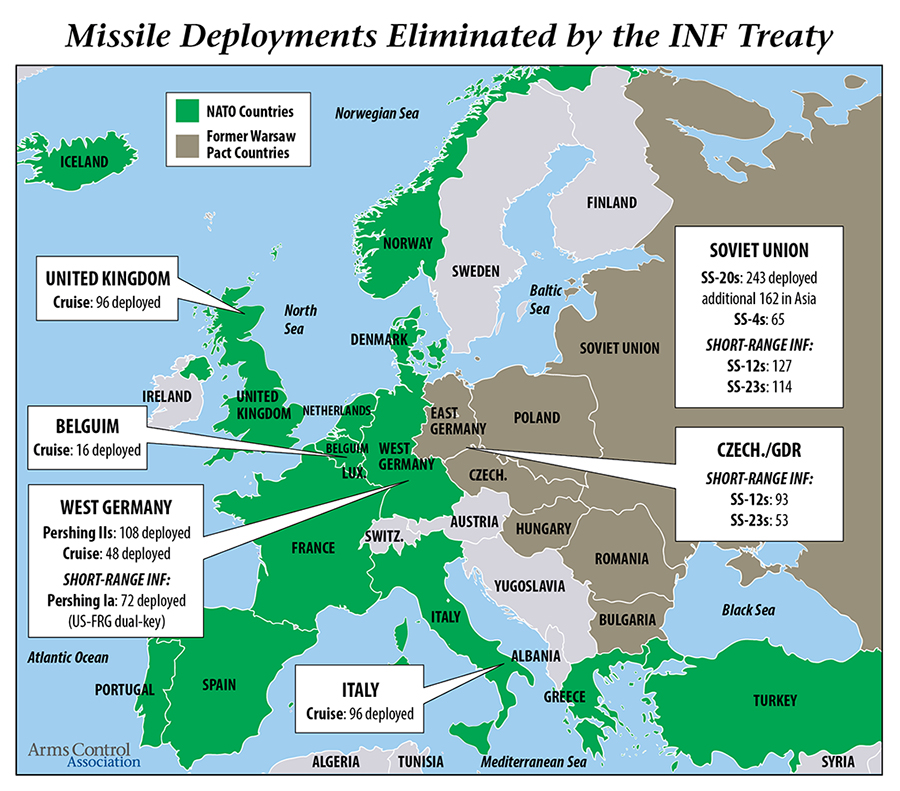 The 1987 Intermediate-Range Nuclear Forces (INF) Treaty led to the verifiable elimination of over 2,500 Soviet and U.S. missiles based in Europe and helped bring an end to the Cold War.
The 1987 Intermediate-Range Nuclear Forces (INF) Treaty led to the verifiable elimination of over 2,500 Soviet and U.S. missiles based in Europe and helped bring an end to the Cold War.
But now, the United States and Russia are on course to withdraw from the INF Treaty in six months over a long-running dispute over Russian compliance with the treaty.
Termination of the INF Treaty opens the door for Russia and the United States to develop and deploy more and new types of ground-launched intermediate-range missiles–a move that would increase the risks of a destabilizing new missile race.
You can help stop this!
A group of leading U.S. Senators has re-introduced the "Prevention of Arms Race Act of 2019," which would prohibit funding for the procurement, flight-testing, or deployment of a U.S. ground-launched or ballistic missile until the Trump Administration meets seven specific conditions, including identifying a U.S. ally formally willing to host such a system, and in the case of a European country, have it be the outcome of a NATO-wide decision.
This bill is a step in the right direction. New U.S. ground-launched cruise deployments in Europe or elsewhere would cost billions of dollars, take years to complete, and are militarily unnecessary to defend NATO allies because existing weapons systems can already hold key Russian targets at risk.
Your Senators need to hear from you.
